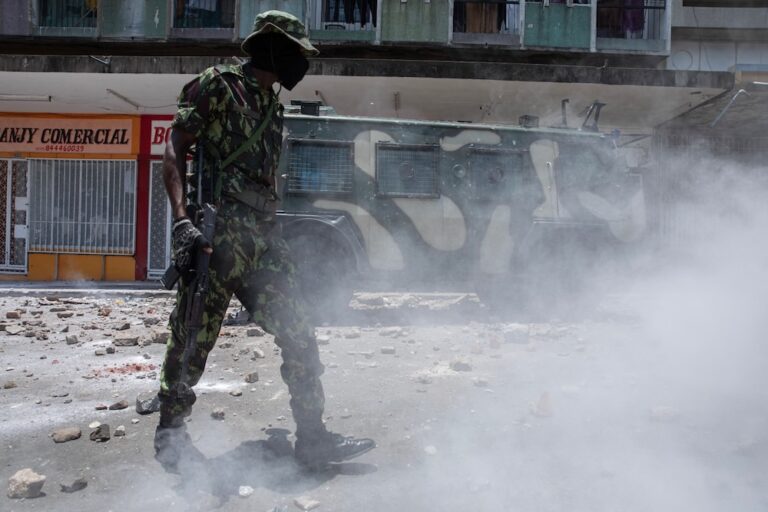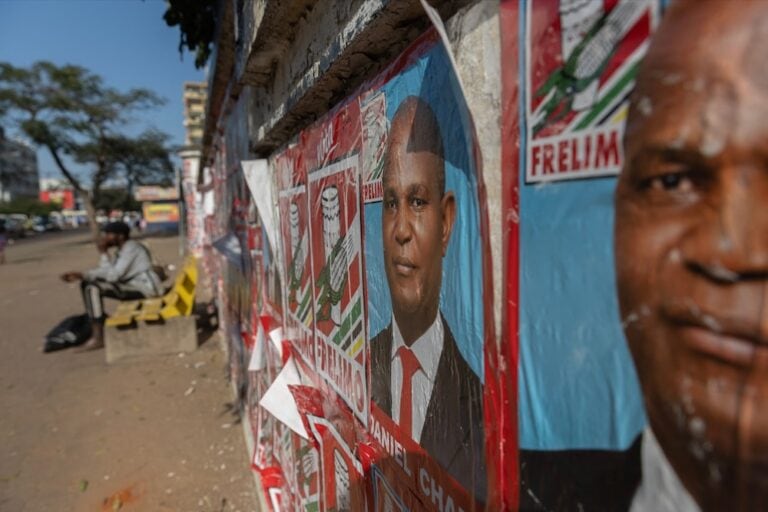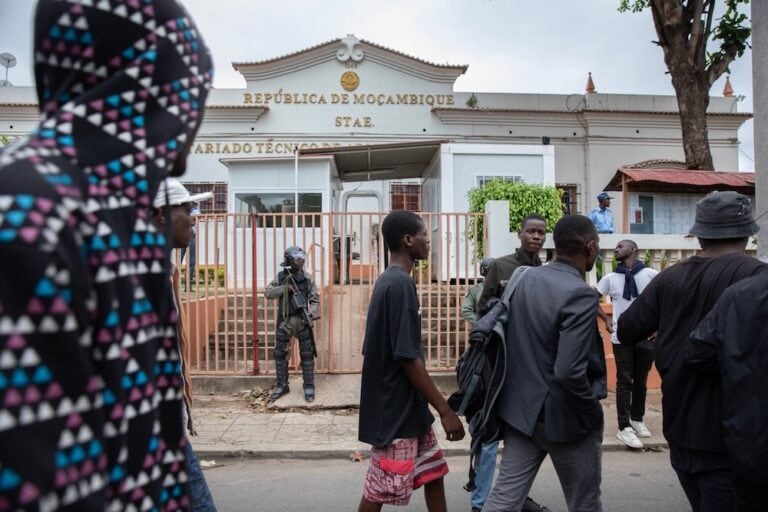(ARTICLE 19/IFEX) – The following is an ARTICLE 19 press release: MOZAMBIQUE – A DECADE OF PROGRESS ON FREE SPEECH ARTICLE 19 today releases a good news story for Africa. A wide-ranging survey on Mozambique published this week details the remarkable transformation from a society beset by censorship to one where freedom of expression is […]
(ARTICLE 19/IFEX) – The following is an ARTICLE 19 press release:
MOZAMBIQUE – A DECADE OF PROGRESS ON FREE SPEECH
ARTICLE 19 today releases a good news story for Africa. A wide-ranging
survey on Mozambique published this week details the remarkable
transformation from a society beset by censorship to one where freedom of
expression is increasingly strongly protected.
Andrew Puddephatt, Executive Director of ARTICLE 19, today welcomed the
progress which has been made in Mozambique, but pointed out there were still
areas which could do with reform:
“The new Constitution has the potential to provide some of the strongest
guarantees for freedom of expression in African law. However, there is an
urgent need for a freedom of information act, and ARTICLE 19 recommends that
the Press Law and Law on State Security are amended as soon as possible to
bring them more fully into line with international standards. We also urge
that the role of the Supreme Council for Mass Communications (CSCS) is
clearly laid out in the Constitution, and its independence guaranteed.”
ARTICLE 19 and the Mozambique Human Rights League (LDH) will be monitoring
the broadcast media before, during and after the upcoming elections to see
how the legal guarantees of balance and impartiality work in practice.
Alice Mabota, Executive Director of LDH, speaking at a press conference to
launch ARTICLE 19’s report, stated:
“The legal guarantees which the Mozambican Constitution offers for freedom
of the press need to be turned into reality. Reporting about politicians
continues to be difficult, the publicly owned press is not the independent
source of information it should be, and ‘informal’ repression of
journalists – beating, harassment and confiscation of their materials – is
still a problem.
“The media monitoring project which our two independent organisations will
undertake during the election period will lead to recommendations which
should improve the long-term functioning of the media,” she added.
Benefits of the draft Constitution include specific provision for equitable
access to broadcasting time on the public media for political parties, trade
unions and professional organisations, particularly during election periods.
ARTICLE 19 also commends Mozambique’s provision for the protection of
journalists’ sources as extremely progressive.
However, the report also identifies areas of concern. One area where urgent
reform is needed is the law on defamation. Whilst a court ruling in June
dismissed a US$2 million suit brought by a politician against “Domingo”
newspaper, theoretically libel can be punishable by a prison sentence, huge
fines or suspension of publications.
There is also a need for authorities in rural areas to uphold press freedom
to the same extent as in Maputo and provincial capitals. A case in the Cabo
Delgado district of Chiure saw Fernando Quinova, a journalist working for
the state-owned Mass Communications Institute (ICS), spending 23 days in
detention for a story about a death in police custody. The fact that an
officer was eventually prosecuted in connection with the case is a positive
step towards addressing this problem.
ARTICLE 19 points out that the print media is inaccessible to over 60 per
cent of the population who are illiterate, that lack of electricity and the
high cost of batteries mean that even access to the radio can be limited in
many parts of the country, and that the media itself can be hampered by low
salaries and dependence on patronage which undermines their independence.
Note: The report went to press before the “Doming” newspaper case came to
court. Please see errata slip in the report for further details.


